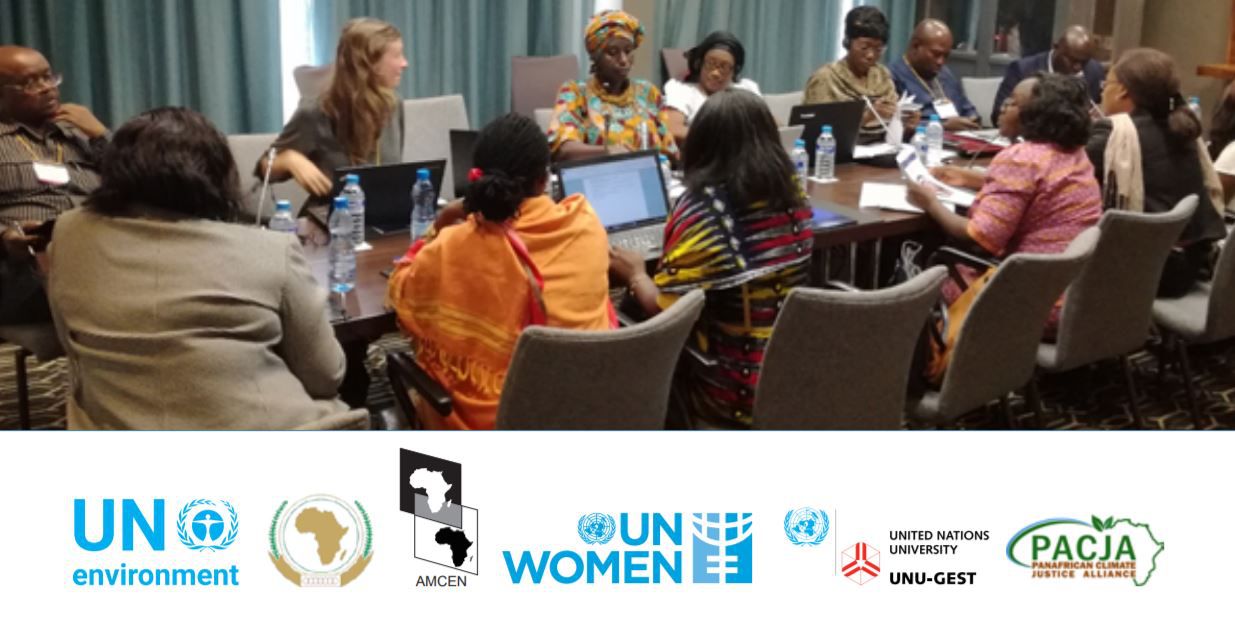More than 100 women energy entrepreneurs and experts in energy policy, financing, and capacity building recently gathered in Libreville, Gabon, for the Women Entrepreneurs and Sustainable Energy Workshop.
Their aim was to identify the main challenges that hinder the establishment, growth, and development of women-led micro and medium size enterprises serving in the energy market, including the ‘last mile’. The event also promoted the inclusion of gender equality concerns in the action agenda on gender and sustainable energy, and aimed at proposing innovative policy instruments, technological solutions and financing and business models that could address the identified challenges.
Sheila Oparaocha, ENERGIA International Coordinator and Programme Manager, was an active participant: as the facilitator of the session on gender responsive policy as well as a member of the drafting committee that supported the development of the final recommendations.
High level speakers emphasize the critical role of women
UN Environment Director and Regional Representative for Africa, Juliette Biao Koudenoukpo, opened the workshop and emphasized that clean, reliable energy is a critical element of development for Africa, the SDG’s and the 2063 goals. She also pointed out that Africa’s energy supplies were not meeting the energy needs of the continent, and that, “We need to transform our women from traditional to technology based use of clean renewable energy and from user to Agents of Change and from consumer to Producer.”
Another speaker during the opening session was Haddijatou Jallow, Chair of the Africa Women Ministers and Leaders Environment. She emphasized that policies need to be gender sensitive, and women need to be included at all levels of decision making. In her words, “We must be ready to take bold decisions that will result in ambitious proposals, and the decisions we take are critical for women empowerment and their wellbeing in the sustainable and renewable energy sector.”
Hildigunnur Engilbertsdottir from the Icelandic Ministry of Foreign Affairs reported that gender and energy were the two main themes of Iceland’s international cooperation. She also pointed out that lessons can be learned from Iceland on how local farmers spearheaded the transition from fossil fuels to clean renewable energy sources. Lastly, Co-chair of the Pan African Climate Justince Alliance John Bideri highlighted that we need to invest in clean energy and that women will play a critical role. He concluded that we need to invest in women, and to set clear targets and activities on what we want to achieve.
Enterpreneurs call for action
Plenary sessions focused on three main areas: Environmentally sustainable and gender responsive energy policies; access to finance and market for women energy entrepreneurs across the value chain; and capacity building and skills on technical and business aspects for entrepreneurs.
Main outcomes from the discussions include the following observations:
- Women face risks entering the market as entrepreneurs where they are less likely to possess collateral in order to secure access to loans.
- Developing targeted funding mechanism is crucial for women entrepreneurs.
- Policy development and training mechanisms should be developed at various levels given that women entrepreneurs are not a homogeneous group.
Workshop participants recommended a shift from policy discourse to implementation. They emphasized that access to energy should be a universal right and not a political agenda. Furthermore, there is need for harmonized policies to promote decentralized energy solutions and investments. Finally, workshop participants called for the empowerment of women and girls through education and capacity building.
More detailed recommendations were formulated in the Libreville Outcome Statement on Women Entrepreneurs and Sustainable Energy in Africa (available here).
The Women Entrepreneurs and Sustainable Energy Workshop took place from 13-14 June, alongside the Sixteenth Session of the African Ministerial Conference on Environment. It was co-organized by UN Environment, the Ministry of Foreign Affairs Iceland, United Nations University Gender Equality and Studies Programme (UNU-GEST), UN Women, and Pan African Climate Justice Alliance (PACJA).







